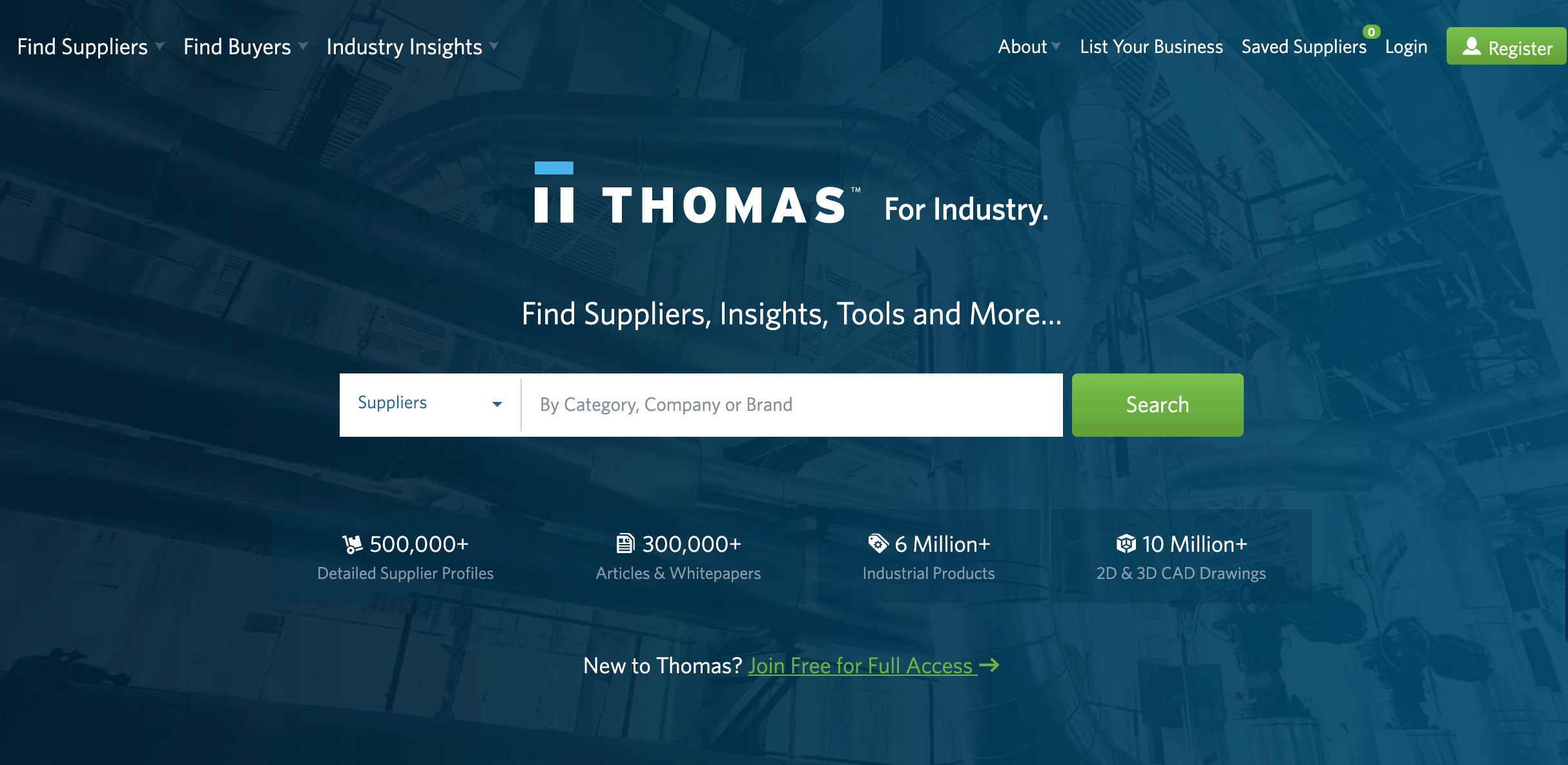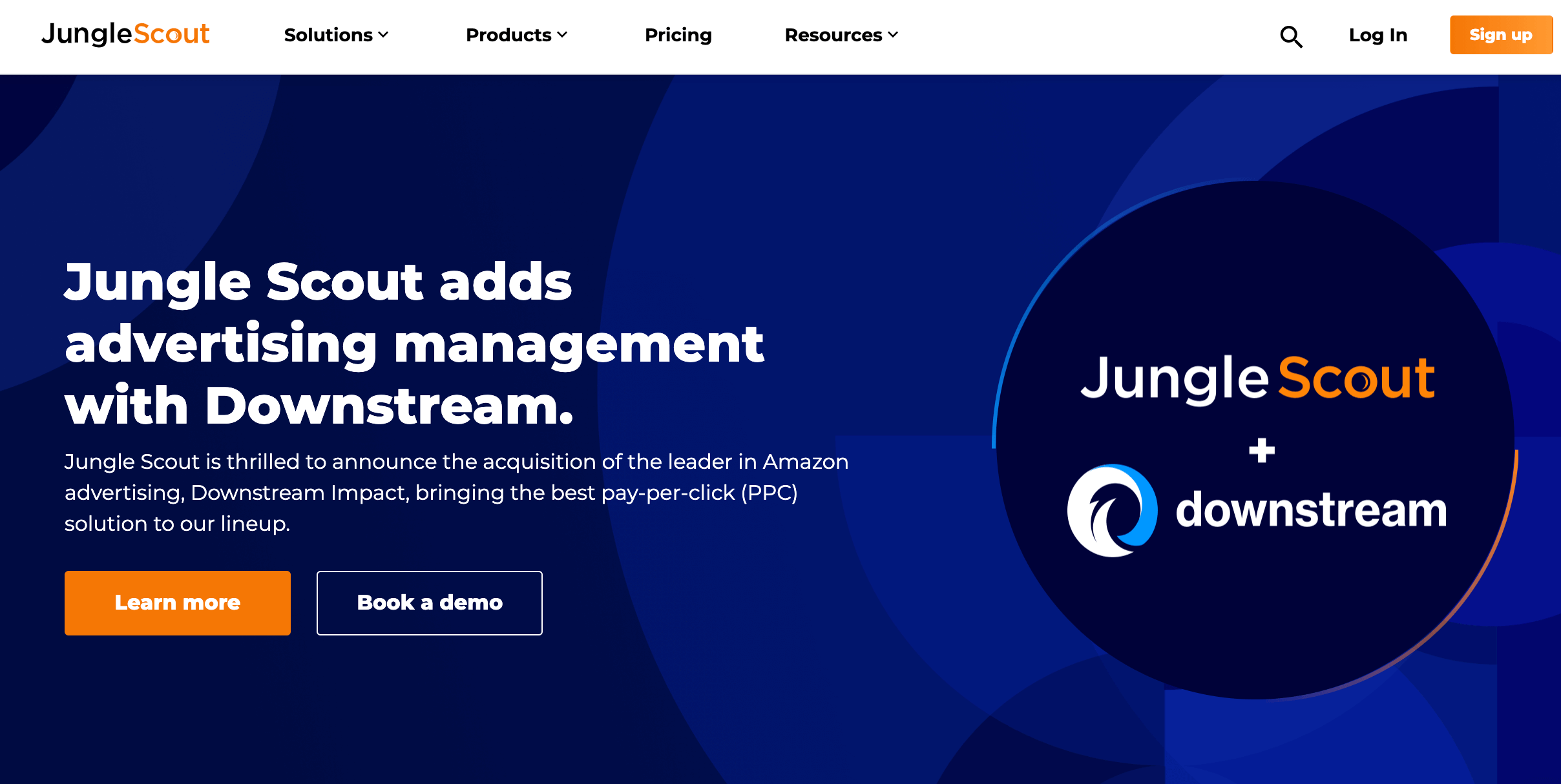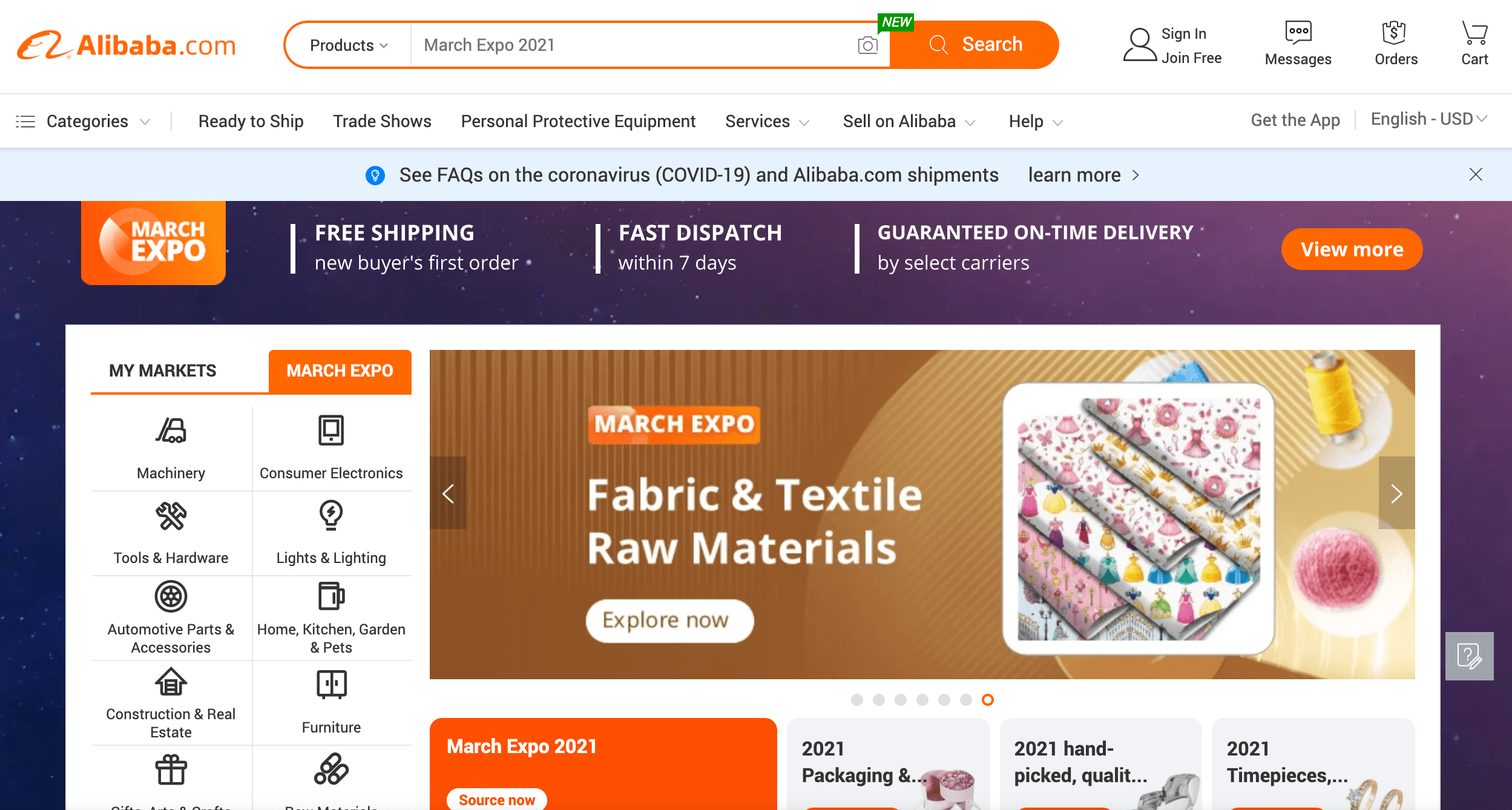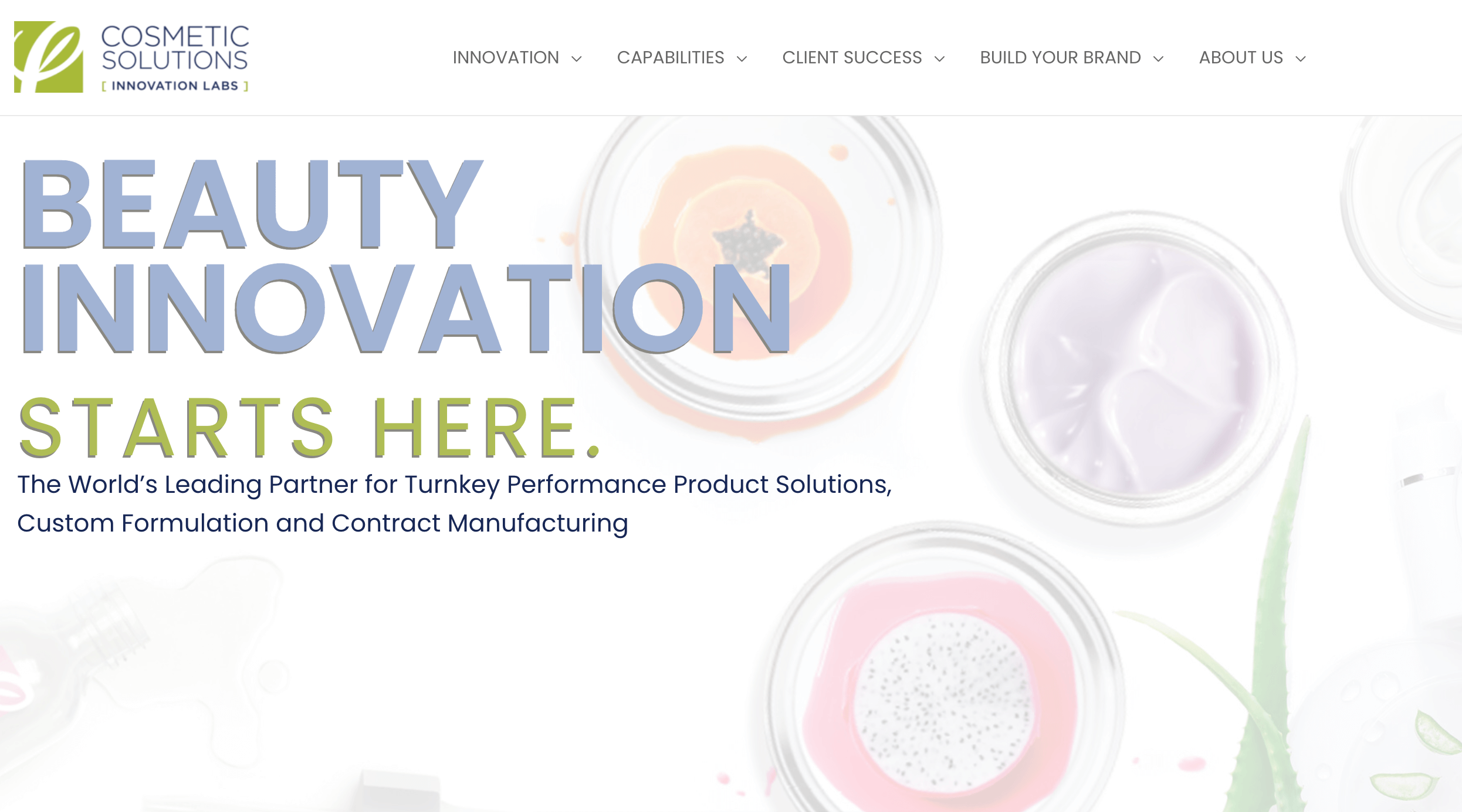How to Find and Vet Private-Label Manufacturers
If you’ve ever considered selling physical products online, you may want to consider starting your own private-label brand.
Private-label brands are becoming more and more common as e-commerce businesses continue to steadily grow. This business model is geared toward selling products not only on Amazon but also across many other platforms, such as Shopify, eBay, and Etsy.
The first step to starting a private-label brand is to source a manufacturer for your product line (usually overseas manufacturers offer the best margins). In this post, we give you a step-by-step guide to finding, contacting, negotiating with, and setting up your private label manufacturer. We also give you a few helpful tips to ensure that this process is as smooth as possible for your new e-commerce business.
What Is a Private Label Product?
When you, as a retailer, contract a manufacturer to supply a product with your company’s name printed on it on your behalf, the item is called a private-label product. Sellers of many brands choose to use this business model because it is far less expensive than manufacturing products themselves. It also increases margins, which helps them focus on more important things, such as marketing and distribution.
How to Find Private-Label Manufacturers
When looking for a private-label manufacturer, your choice depends on the physical product that you plan on selling. Each manufacturer will have its own specialty of goods they produce. Here are a few places you may want to research first to see if they can provide you with what you are looking for:
SaleHoo
SaleHoo is a powerful research tool, supplier directory, and online community for dropshippers, wholesalers, and e-commerce stores. It offers market research tools to compare product ideas before you even make a single order. With over 8,000 low-cost suppliers to choose from, you are sure to find a manufacturer at a reasonable price that fits your business plans.
ThomasNet
ThomasNet is another directory that provides an easy-to-use platform on which to search for and locate suppliers based on their location. This is a great directory because you are not limited to overseas manufacturers; you can also find those located in the United States.
Jungle Scout
Jungle Scout gives you the ability to uncover low-competition keywords and product potential. As well as providing you with the ability to choose winning products that you can research further, it is also an easy-to-use platform for tracking sales. With metrics that you can customize and filter, it helps you choose the best products using sales data from other sellers in the market.
Alibaba
Another directory that you can use to find private-label manufacturers is Alibaba. Input the product name or keyword, and Alibaba returns a list of overseas manufacturers that produce your target product. This is great for brands looking to source products overseas, as the majority of Alibaba’s suppliers fall within this category.
Five Steps to Choosing a Manufacturer
When it comes to choosing the right manufacturer for your product, there are several factors to consider. To start off on the right foot, make sure that you already have your business license and banking accounts sorted out before you send a message to anyone. This will save you time down the road, as manufacturers will know you are serious and not shopping around without intending to use their services. Here are a few things to consider during your search for the right private-label manufacturer:
1. Look for a low price and quality reviews
If you are in the business of selling physical products online, make sure that you get the best possible price for your product. You need to find a manufacturer who can produce a high-quality product at a low price, which means not sacrificing quality to achieve cost savings. To ensure that your potential manufacturer meets your standards, pay close attention to their reviews and how they respond to customers. Should a majority of the reviews be bad, keep searching.
2. Introduce yourself
Once you’ve located a manufacturer, you should reach out to the manager to introduce yourself. Begin building a relationship that could one day turn into a lasting business partnership.
3. Gather more information
Having established communication with a supplier, start collecting details on their terms of service. Some questions you need to ask, the answers to which may not be accessible on any of the directories mentioned above, include the following:
- What is the minimum order quantity (MOQ)?
- Can you suggest any modifications to improve the products?
- Do you ship to my country? If so, what are your shipping costs and times?
- What is the price per unit?
- What are the payment methods and terms?
4. Order a prototype
When you have all the details you need to make a decision on whether a manufacturer meets your needs, you need to order a prototype of your product. This is for quality control and to ensure that the product you plan to put your name on meets your standards before moving into the production phase.
5. Place your first order
If you are satisfied with the quality of the test product, you can proceed with placing your first bulk order. By now, conversations with the supplier should be normal and any business negotiations completed.
Tips for Communicating with Manufacturers
When you speak with a manufacturer, it is important to make your questions and requirements very clear. As many manufacturers reside overseas, their first language may not be English. When sending an email request for information, make sure that your message is clear, simple, and detailed enough to enable the supplier to understand it. It may help to include a product mock-up image where text might not be as useful. Try to get this mock up as close to what your desired product should look like to give the manufacturer the best possible idea of what you are trying to achieve.
Is there a Difference between Private Labeling and White Labeling?
This is an important question to ask before any serious negotiations with your manufacturer begin. One difference between private labeling and white labeling is that the former is for a specific brand, while the latter is for generic use. You should be clear with your supplier about which type of labeling you require for your product. Chances are that if you plan on printing your company brand or logo on the product, it is a private-label item.
The Most Popular Private-Label Niche Products
Some of the most popular private-label niche products are those that are easy to manufacture and customize. These include products within the fashion, supplements, and cosmetic industries, where many avenues of similar items exist for sellers to branch into. Here are a few examples of manufacturers within each of these three categories:
Manufacturers of clothing, accessories, and shoes
This is one of the easiest categories in which to find products, as there are so many manufacturers within it. The value of the fashion industry is set to rise to $712.9 billion by 2022. The available choices of fashion products are overwhelming.
Zega Apparel
For those looking to avoid overseas manufacturers, you may want to check out Zega Apparel. The company is based in the US, which means that you avoid second language communication issues. Lead times are also great compared to those of overseas manufacturers.
Manufacturers of health and beauty products
Known as one of the top-growing private label industries, the cosmetics, health, and beauty industry offers an enormous number of products with huge potential. A few things to consider are whether the manufacturer can vary the color of products, produce eco-friendly products, or similar variations to popular items.
Natural Skincare
Natural Skincare produces a range of products geared toward established brands and skincare professionals. The company offers the ability to customize your product by creating a formula tailored to your needs. This service is led by a team of qualified chemists in the company’s FDA-registered and secure manufacturing facility.
Manufacturers of supplements and nutritional products
The dietary and supplement industry has shown huge growth over the past two or three years. Sellers all over the world are taking full advantage of this industry.
If you seek to create your own private-label brand within this industry, several things that you could look to improve would be:
- Changing the supplement’s design (switching from hard to soft gel tabs, for example)
- Improving the package design
- Updating the formula
Vitalabs
Vitalabs relies on years of experience to produce private-label vitamins and other top-quality supplements and nutritional products. Whether you are looking for a larger manufacturer or just starting out, they may have what you’re looking for.
Examples of Private-Label Products
Private-label products can be found in a wide range of categories. Not only items from the manufacturers listed above, but also thousands of products that you can sell under your own brand. Here are a few examples of these products:
- skincare products
- health-care devices
- dietary snacks
- vegan products
- shaving equipment
- yoga accessories
- travel items
With no limit to the types of products you can sell under a private label, this business model attracts those who are looking to start their own brand. Now that you have a better idea of how to source, contact, and start the process of producing private-label items on your own, you may be wondering about the benefits of all this?
The Benefits of Private Labeling
E-commerce sellers are attracted to private-label manufacturing for many reasons. Aside from the customization aspect, a huge benefit is having greater control over the manufacturing process. A few of the other major benefits of this model include the following:
Personalized branding
Compared to the white-label model, the private-label model gives you the option to personalize your product with custom branding. The fact that your product has your very own brand or logo embedded in it is a good way to gain trust with your customers.
Direct contact with your manufacturer
Another huge benefit of the private-label model is that you have direct contact with your manufacturer. You are no longer just another retailer looking to sell generic products; instead, you have a working relationship with the supplier. This direct contact also means that any improvements or changes that you—or your supplier—wish to make to any part of the manufacturing process will be simple matters.
High-quality products
Another factor that makes the private-label model outshine its white-label counterpart is that private-label products have the potential to be of a higher quality. Because you choose your manufacturer, you can opt for one that produces a higher quality product than others. Your customers may be open to paying more for such a product should demand be high. Why settle for generic when you can choose quality over quantity? Of course, in the end, this option will pay for itself through the building of a quality brand name that your customers will love and trust.
Highly scalable
By sourcing your own private-label manufacturer, you can scale your business much easier while maintaining high profit margins. As your sales begin to increase, you won’t be stuck in a situation in which you need to grow your manufacturing facility to keep up with demand. Even in the likelihood of your product experiencing a “low season,” you can lower your inventory numbers without the worry of losing valuable personnel, whom you will need when the “high season” picks back up.
Better marketing opportunities
With the white-label model, marketing opportunities are limited. Separating yourself from the competition is key. The private-label model offers you the ability to customize your products to fit your specific brand voice. This is a huge benefit when attempting to build a brand voice that others have not yet established within your target market. For those looking to start selling private-label goods, these benefits are amazing, but there are a few drawbacks to this business model, too.
The Risks of Private Labeling
Many e-commerce sellers we’ve spoken to say that the advantages of private-label manufacturing outweigh the risks. Yet, we should still bring up a few of the biggest considerations you should take into account before making a decision. The major risks include the following:
Manufacturers’ MOQs
As mentioned above, it is important to ascertain the minimum order quantity for a product from a supplier. This question alone can make or break a relationship with a manufacturer. For example, discovering that a manufacturer only accepts orders of 5,000 units or more might deter you from using that supplier. In such a situation, keep searching for a MOQ that fits both your business needs and budget.
Longer shipping times
As many private-label manufacturers are located overseas, every business owner should consider the risk of long shipping times. Many companies seek to ship goods within a certain timeframe (usually a week from checkout to delivery). While this might seem impossible for products from overseas, such a goal is achievable with some inventory planning.
Liability
As a private-label seller, the liability for the product under your brand name belongs to you. This can introduce a ton of legal issues that you may not be aware of, such as your being accountable for malfunctions or adverse effects of your product. To protect your business investment, consider purchasing liability insurance. Hiring a lawyer may also help with legal guidelines or trademark and other patent risks. Furthermore, a lawyer who specializes in private labels may be able to help with marketing strategies for your product.
Have You Thought about Selling Your E-Commerce Business?
Owning and managing a private-label business is a huge step up from marketing a generic product. You have the chance to ensure the success of your product by setting yourself apart from the competition, which is much easier than dealing with generic white-label products. Another advantage to building and scaling a private-label business is that after all the hard work you put in, you have a sellable asset that hungry investors are looking to acquire.
Many private-label sellers are able to buy their dream homes or move on from their nine-to-five jobs once they exit from their businesses. If you’re looking for a business model that will give you long-term growth potential, then a private-label business is the way to go, as you can sell it down the road. Making the initial investment is the most challenging part; yet, the opportunity to sell your business for 30 or 40 times your monthly net revenue is well worth it. If you are ready to sell your e-commerce business for a huge profit, now is the best time to schedule a call with one of our business advisors.










